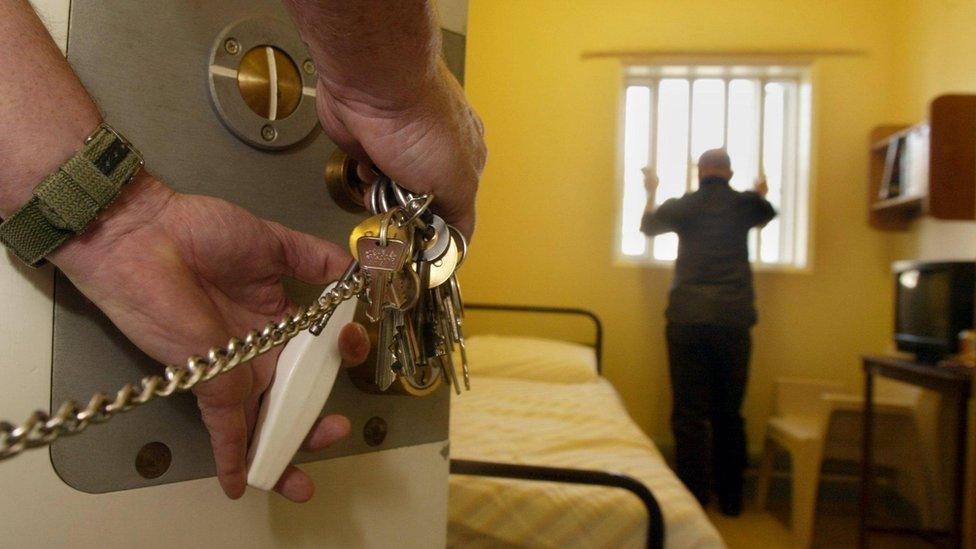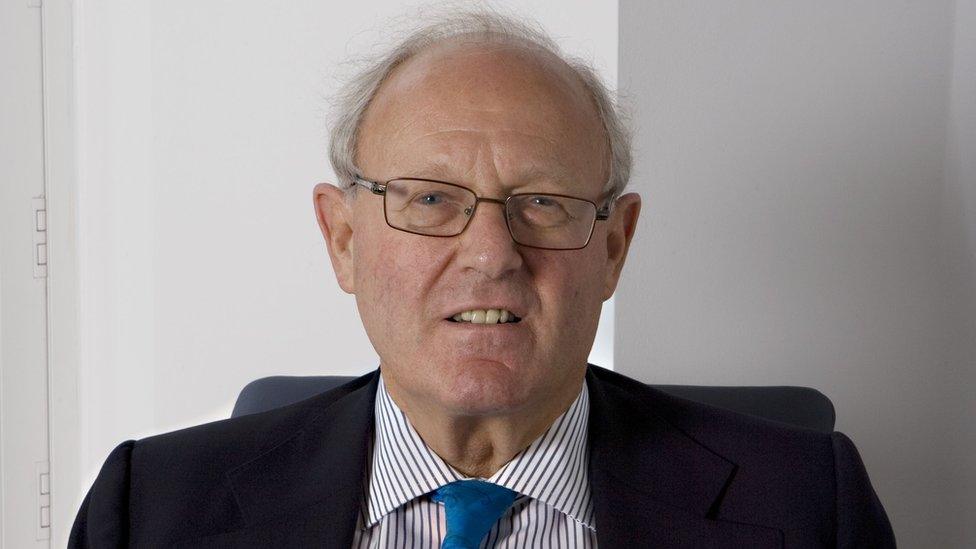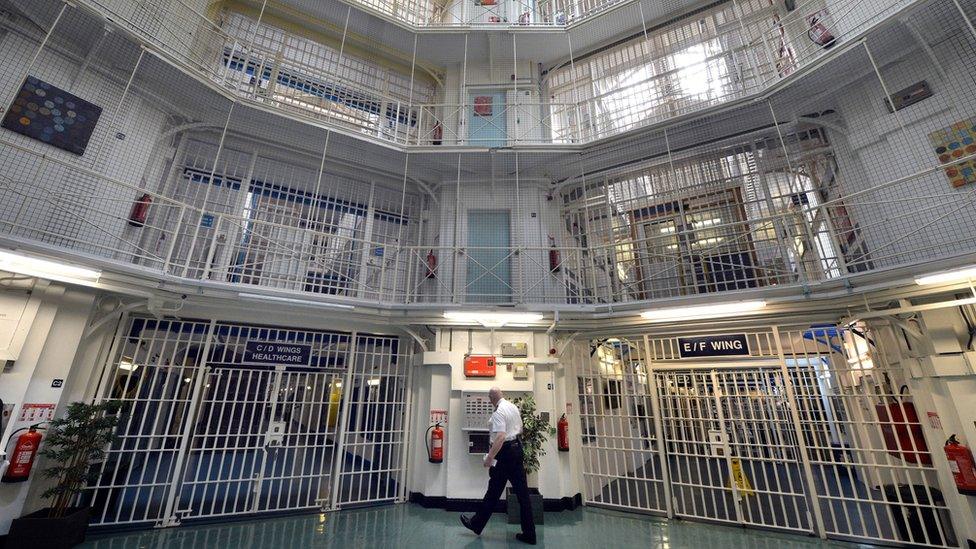Gove's prison sentencing challenge
- Published

One of the most difficult problems Justice Secretary Michael Gove faces in 2016 is the sentencing of offenders.
He needs to reduce the prison population in England and Wales in order to save money, while persuading his supporters that he is not soft on crime.
One proposal is to release foreign prisoners early on condition that they leave the UK. Another is to increase the use of day release.
But his hands are tied because politicians cannot tell judges what sentences to pass in individual cases.
What the justice secretary can do is to seek changes in the law if he thinks it is operating unfairly.
A law that has come in for a great deal of criticism is the former sentence of imprisonment for public protection, known as IPP, external.
Offenders were given a notional minimum term, known as the tariff, but they could be detained indefinitely after that term had expired.

Sometimes offenders fail to grasp how long they will spend behind bars
The IPP sentence was designed to ensure that dangerous violent and sexual offenders stayed in custody while they continued to present a risk to society.
The sentence was introduced under the Criminal Justice Act 2003 when Lord Blunkett was Labour's home secretary, and abolished at the end of 2012, when Kenneth Clarke was the Conservative minister responsible for sentencing policy.
But abolition was not retrospective. In June this year, more than 4,600 prisoners, external were still serving IPPs.
By September, external, more than three-quarters had completed their minimum term and 392 IPP prisoners had served more than five times their tariff.
The government's policy is that IPP prisoners should continue to be detained until they can persuade the Parole Board, at a hearing, that the risks they pose to the public are safely manageable in the community.
'Terrible scourge'
But the Parole Board has a backlog of cases waiting to be heard - although that was reduced by 18% during the first 10 months of 2015 as a result of increased funding.
Even so, Lord Brown of Eaton-under-Haywood, a former justice of the Supreme Court, described IPPs as a "form of preventive detention - internment - entirely alien to our traditional criminal justice approach".
He called on the justice secretary to "bring this terrible scourge to an end", external.

Lord Brown has been highly critical of IPPs
Although Michael Gove could do that, if he was persuaded to, he cannot issue sentencing guidelines for particular types of crime.
That's the job of the Sentencing Council, external, which was set up by Parliament to promote consistency in sentencing while maintaining the independence of the judiciary.
It recommends sentences according to the relative seriousness of different offences and the seriousness of the offender's behaviour relative to that of others convicted of the same offence.
Sometimes the council's guidelines are likely to result in shorter sentences (than they would have received before the guidelines were issued) and so the prison population will go down.
Some middle-ranking cases can be tried either by magistrates or by judge and jury.
From March 2016, external, magistrates will be encouraged not to send cases for trial in the Crown Court if they can be heard by the magistrates themselves.
Magistrates have more limited sentencing powers although, if necessary, they can send a convicted defendant to be sentenced in the Crown Court.

Mr Gove wants to reform sentencing while continuing to punish those who break the law
Sentencers will also be reminded to give a full one-third discount to those who plead guilty at the earliest opportunity, even if the evidence against the defendant is overwhelming.
Sometimes Sentencing Council guidelines that attempt to get the courts to pass shorter sentences may backfire and produce the opposite result.
The council's chairman, Lord Justice Treacy, recently admitted, external that new guidelines for serious assaults had led to longer sentences, despite predictions that punishments would be less severe. The guidelines will now be revised.
Confusion
And sometimes offenders fail to grasp how long they will spend behind bars.
Anybody convicted of murder can expect to spend 15 years in prison, or 25 years if the accused was carrying a knife or other weapon.
It is not widely understood that offenders sentenced to life imprisonment must serve their tariffs in full before being considered for release on licence, unlike other offenders who are likely to be released after serving less than half their sentences.
Michael Gove recognises that many prisoners are "mad" or "sad" rather than "bad".
He also knows that a quarter of those held in prison awaiting trial do not subsequently receive custodial sentences.
In some cases that is because they are acquitted; in others, they may have already served the equivalent of their sentences while on remand.
His challenge now is to reform sentencing while ensuring that it continues to deter would-be offenders and punish those who break the law.
- Published9 November 2015

- Published5 November 2015
